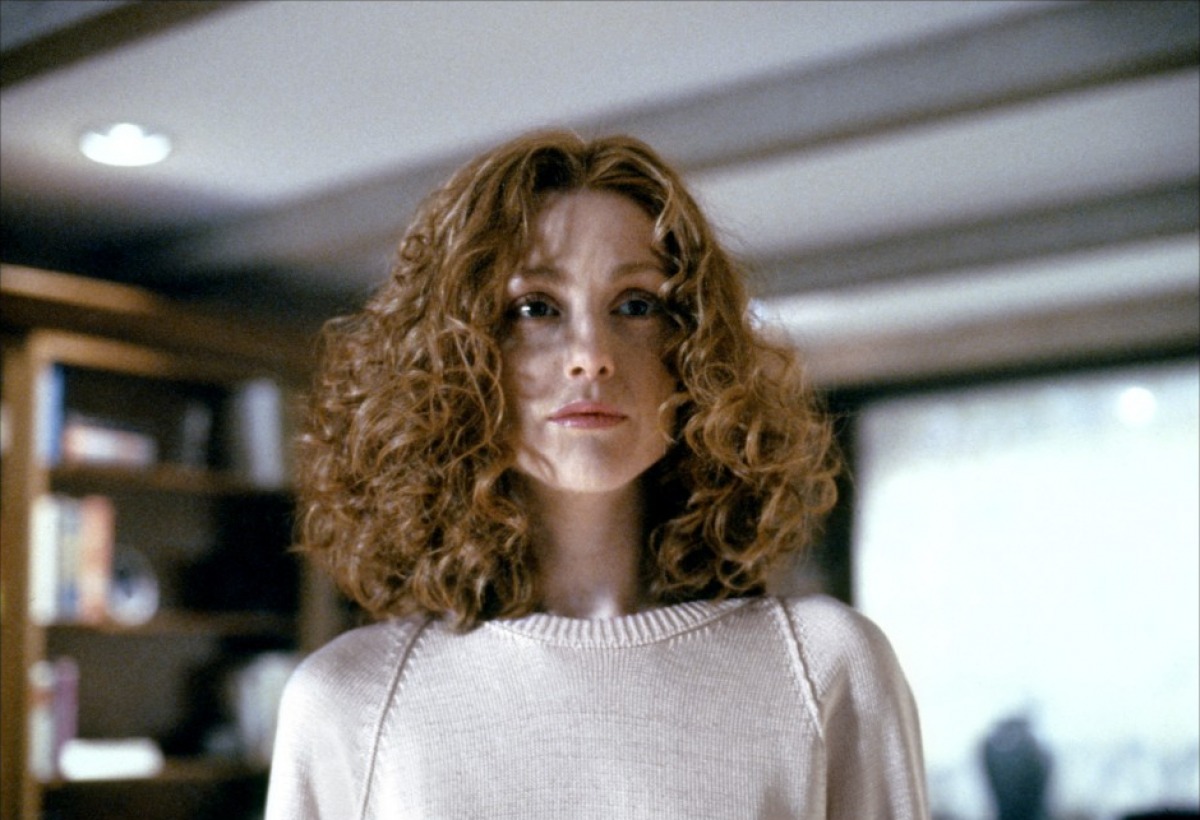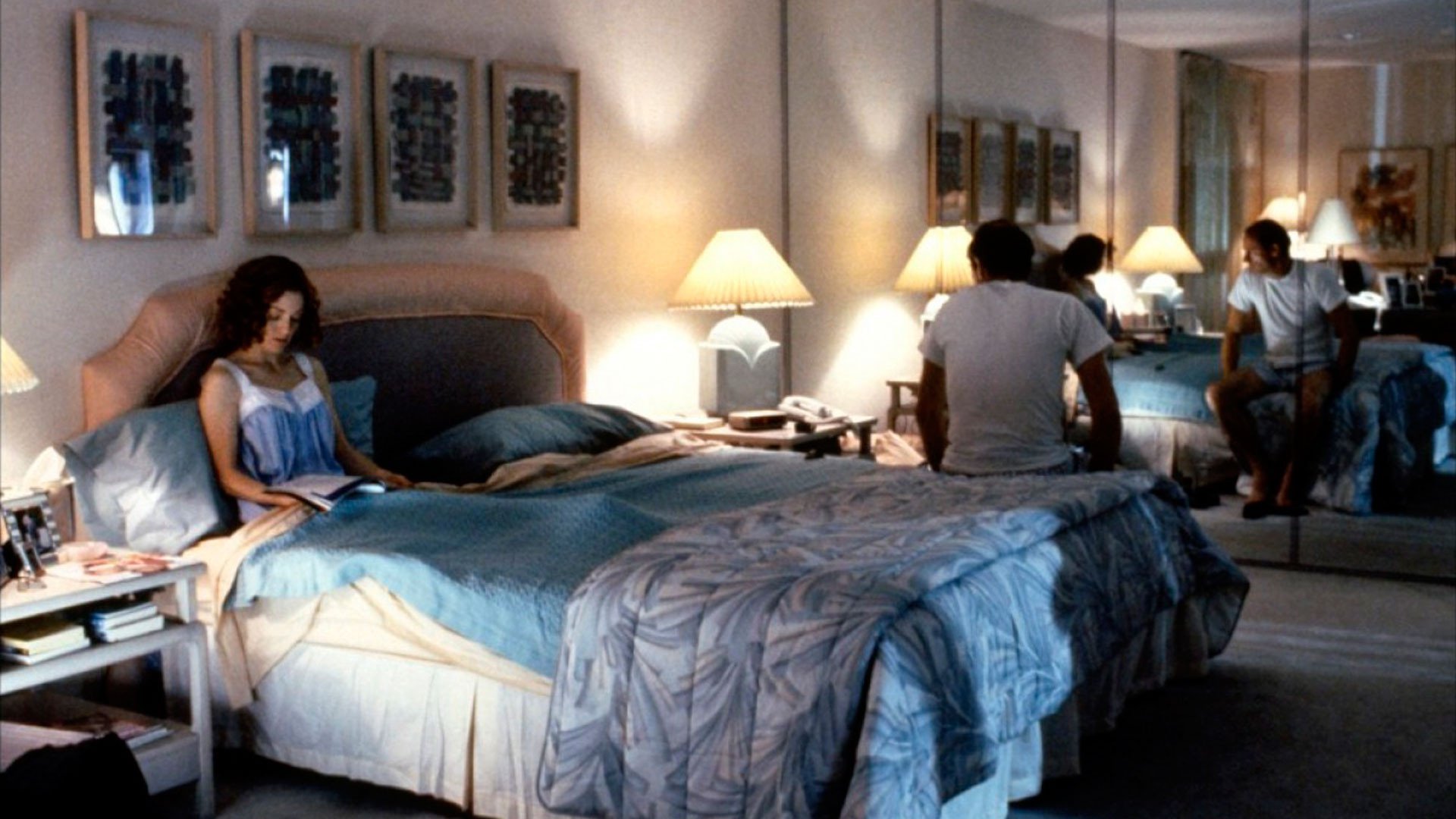
Being and time
The oft antagonistic American indie filmmaker Todd Haynes first forced my attention with his 1995 revisionist art house horror film Safe, and I’ve been a supporter of his ever since. His sophomore film (following his impressive debut from 1991, Poison, and a string of exceptional short films), Safe is a masterpiece of existential catastrophe and coolly detached uncertainty that also serves as one of the best American films of the nineties.
Safe stars the luminous Julianne Moore, in her first starring role, as Carol White, a So Cal housewife in the year 1987. Carol leads a humdrum life in a sober suburban façade that slowly starts to languish around her in an eerie and oblique manner that reaps maximum effect from the illusory manipulation of sound and image. She has lifeless sex with her addled husband (Xander Berkeley). She shops, and gossips, and has hair appointments, and her comfortable existence crashes down bit by bit.
“You don’t always notice it, but during a lot of the scenes in Safe there’s a low-level hum on the soundtrack. This is not an audio flaw but a subtle effect: It suggests that malevolent machinery of some sort is always at work somewhere nearby. Air conditioning, perhaps, or electrical motors, or idling engines, sending gases and waste products into the air. The effect is to make the movie’s environment quietly menacing.”
– Roger Ebert

The anxiety in the antiseptic routines of Carol’s day-to-day life, her disconnect with her family, her inability to function, therein lies the horror that Haynes’ film luxuriates in. This is not the horror of monsters run amok but of ennui, alienation, and psychosomatic worry.
Carol, increasingly frazzled over commonplace occurrence, such as the delivery of new furniture to her Stepford-esque abode, wigs out with the non-specific illness known as MCS (multiple chemical sensitivity). A controversial malady, MCS is thought to be set off by chemicals found in commonplace household products, dubbed “the Twentieth-Century Disease” it’s a great metaphor for Haynes to mess with.
And he does just that, with an at times Kubrickian sense of spacial dynamics, occasionally throwing back to 70s paranoia thrillers (think the Conversation, Marathon Man, and the Parallax View), and evidence of an Antonioni-like woman in distress vibe (Il Deserto Rosso specifically), yet still retaining his own inventive modes and manipulations.
Caustic handling of decor, location, and characterization makes Safe an assured feat of strength on so many levels. As a showpiece for Moore, she’s astonishing (Haynes and Moore would reunite for his Douglas Sirk-inspired Far From Heaven, another career capstone for both) as Carol, crystallizing the creepy vignette of blissed-out bourgeoisie during the Me Decade.
Carol, clad in austere white during the first act of the film (not only to match her surname but also her blankness), soon suffers choking sensations, coughing fits, and cryptic nosebleeds until one day, at the dry cleaners, she collapses. Her fragile mental state sends her to psychotherapy and, eventually, to a New Age cult-like retreat in New Mexico called Wrenwood.
“Haynes does a powerful job of conveying his hatred for the [Julianne Moore] character’s Sherman Oaks milieu (where he himself grew up) through his crafty and at times almost hallucinatory layering of sound and image. Though Haynes’s methodology is his own, you may be reminded at times of Michelangelo Antonioni and Chantal Akerman.”
– Jonathan Rosenbaum, Chicago Reader
The courage to be

Expertly provocative and appalling, Haynes floors the accelerator as only he can during the third act of the film, where brainwashed Age of Aquarians, twelve-step didactics, and guru guiding light clichés get a careful comeuppance. It’s subtle, perhaps to a fault, and Carol’s suffering (she struggles almost comically at times, with an oxygen tank at her side) is both palpable and pathetic.
Her illness, and those of the other privileged beau mondes at Wrenwood seems so half-cracked it’s cautiously hysterical. It’s all the worse that their Jim Jones-channelling motivational speaker, Peter Dunning (Peter Friedman, perfect), lectures on how to feel better and breathe easier but seems only capable of making everyone feel shittier.
“We are one with the power that created us. We’re safe and all is well in our world.”
– Peter Dunning (played by Peter Friedman)
Ambiguity abounds and Haynes keeps us a safe distance from Carol’s sadness––except, of course, that it will haunt you forever and a day afterwards––with well-observed satire both deeply and artfully understated.
As an exercise in visual style, Haynes proves his mastery with [Safe], the kind of film that demands a clear-sighted measure from the viewer. It hints at slow cinema with its persistent use of master shots––close-ups are often absent where the audience might be demanding them the most––and it certainly makes for a prime example of chic postmodernist cool. He allows his carefully composed shots to linger, to escalate, to alienate, and this results in a captivating and controlled patchwork that wavers to the diligent viewer’s whim.
Ultimately, with Safe Haynes presents us with a somnambulant nightmare of consumerist decay, of a woman’s life leeched of vitality, secure only in the knowledge that something is terribly, terribly wrong.
Author Bio: Shane Scott-Travis is a film critic, screenwriter, comic book author/illustrator and cineaste. Currently residing in Vancouver, Canada, Shane can often be found at the cinema, the dog park, or off in a corner someplace, paraphrasing Groucho Marx. Follow Shane on Twitter @ShaneScottravis.